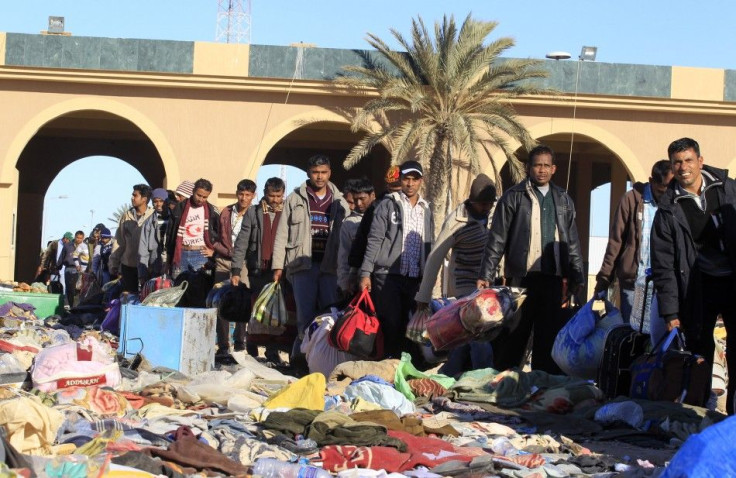Britain, France, Tunisia begin to airlift Egyptians out of Libya

Britain, France and Tunisia have started airlift thousands of Egyptians stuck at the Libya-Tunisia border to safety in Cairo, in response to pleas from the United Nations (UN) to prevent a humanitarian crisis.
About 85,000 Egyptian refugees are currently stranded in camps at the border and more are expected to pour in from strife-torn Libya.
Last night, two British-chartered planes arrived in Cairo carrying more than 400 Egyptians (including seven babies) from Djerba, Tunisia. A third British plane is reportedly flying to Djerba from Verona in Italy.
Two French-chartered Airbuses and several Tunisian planes have also joined the emergency rescue shuttle.
Britain's Department for International Development said the three British aircraft will carry out the evacuation over the next three days, hoping to repatriate 6,000 Egyptians.
The British Prime Minister David Cameron encouraged his country’s involvement in the evacuation, after his suggestion of establishing a no-fly zone over Libya was not widely embraced.
It is vital to do this,” he said. “Those people should not be kept in transit camps if it is possible to take them back to their home. I am glad that Britain can play such an important part in doing that.
Meanwhile, as the fighting between pro- and anti-Gaddafi forces continues to rage, the United Nations High Commissioner for Refugees (UNHCR) and the International Office for Migration (IOM), warned that as a huge wave of humanity continue to seek escape from Libya, border officials in Tunisia will be unable to cope.
An UNHCR spokeswoman said 25,000 people (mostly Egyptians) remain camped on the Tunisian side of the border while up to 30,000 are stuck in limbo on the Libyan side, waiting to cross.
We don't have much capacity on the Tunisian side right now,” she said.
“The people coming over are themselves erecting their tents and we give them materials. It is at crisis point and that is why we have called for a massive humanitarian evacuation. This is not something that two international organizations and one fragile government can manage.
The UNHCR is also urging foreign governments to allow at least 11,000 sub-Saharan African refugees who are currently living in Libya to enter their countries, by adjusting their respective asylum quotas.
These people are mostly black Africans who has sought asylum in Libya and are frightened of returning to their own countries. Now they face a huge backlash from Libyan because it is believed that Gaddafi used mercenaries from these countries to kill his opponents and protesters.
We are getting calls, emails, from really terrified refugees who say they are being targeted,” said the UNHCR spokeswoman.
“They are terrified for their lives, which is why we think many of them are not escaping, because they feel if they go out into the streets, they'll be hunted. They are citing examples of people who were actually targeted and killed because of the color of their skin.
Jemini Pandya, a spokeswoman for International Organisation for Migration (IOM), told the Associated Press that thousands of Vietnamese and Bangladeshis are stranded in Libya in urgent need of food, water and shelter,
Pandya added that Nepalese, Ghanaian and Nigerian nationals are also stuck at the border.
With thousands of migrants still awaiting authorization to enter Tunisia, there is an urgent need to decongest the border area which lacks adequate facilities to host large numbers of people, said Marc Petzold, the IOM's Tunisia mission chief.
© Copyright IBTimes 2024. All rights reserved.











